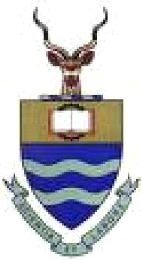|
UNIVERSITY OF THE WITWATERSRAND,
JOHANNESBURG

FACULTY OF ENGINEERING AND BUILT ENVIRONMENT SCHOOL OF
ARCHITECTURE AND PLANNING
Development Planning Programme
Research Report
THE ROLE OF CIVIL SOCIETY IN PROMOTING GREATER SOCIAL
JUSTICE FOR FORCED MIGRANTS LIVING IN THE INNER CITY OF
JOHANNESBURG
Student name: Dieudonné BIKOKO MBOMBO Student Number:
0314974N
Supervisor Name: Dr. T. WINKLER
October 5th, 2006
THE ROLE OF CIVIL SOCIETY IN PROMOTING GREATER
SOCIAL
JUSTICE FOR FORCED MIGRANTS LIVING IN THE INNER CITY OF
JOHANNESBURG.
Dieudonné BIKOKO MBOMBO
A thesis submitted to the Faculty of Engineering and
Built Environment, University of the Witwatersrand, Johannesburg, in
fulfilment of the requirements for the Degree of Master of Science in
Development Planning.
Johannesburg, 2006
ABSTRACT
This paper analyses what has arguably become a salient
feature of a `just city' and social development on an international
level, namely social justice. Specifically, it focuses on the role of
the Johannesburg's civil society organisations in promoting greater social
justice for forced migrants (refugees and asylum seekers) living in the
downtown Johannesburg. For this purpose, a case study was carried out,
particularly with Africa's forced migrants living in the inner city of
Johannesburg (in Hillbrow and Yeoville). The research makes use of in-depth
interview and participant observation methods to uncover the
perspectives of a group of refugees and asylum seekers and members of seven
civil society organisations, working with forced migrants in Johannesburg.
The main research question that the study addresses is: What role can
civil society organisations play in facilitating greater social justice for
Africa's asylum seekers and refugees living in the inner city of
Johannesburg?
I have concluded that Johannesburg's civil society
organisations have the potential, which may allow them to bring social
transformation and create a just city by promoting a greater social justice
for forced migrants living in the inner city. To achieve this goal,
they should play a reformative and transformative role in the inner
city, by challenging government exclusionary policies and decisions relating
to the forced migrants; and, at the same time, they should mediate between the
government and forced migrants at the local and national levels.
To conclude this report, I recommended civil
society organisations to develop strong collaboration with the city's
planners for a better improvement of the quality of life of forced migrants in
the inner city. I also recommend the national government to
decentralise its decision-making power on international migration issues by
conferring to the provinces and local governments certain power which can
allow them to develop internal structures (taking into account the context of
each province), which can allow them to protect the basic rights of refugees
and asylum seekers, such as the rights to work, to study, and to
access free health
DECLARATION
I declare that this dissertation is my own, unaided work. It is
being submitted for the Degree
of Master of Science (Development Planning) in the
University of the Witwatersrand, Johannesburg. It has not been
submitted for any degree or examination in any other
university.
(Signature of candidate)
ACKNOWLEDGEMENTS
I would like to thank God for giving me the opportunity to
complete my Master Degree in Development Planning, at the University of the
Witwatersrand, Johannesburg. Also, I would like to express my appreciation to
all my family (back home, in the Democratic Republic of Congo, DRC) and
friends for sparking my interest in social justice and the role of
civil society. Finally, I would like to thank my current advisor, Dr Tanja
Winkler, who has been helpful with my research report every step along the
way; as well as Dr Aly Karam, the Co- ordinator of the Development Planning
programme, who continuously provided me for moral
ABBREVIATION
ANC: African National Congress
BEE: Black Economic Empowerment
CoJ: City of Johannesburg
CSOs: Civil Society Organisations
DRC: Democratic Republic of Congo
DPCR: Department of Pastoral Care for Refugees
DHA: Department of Home Affairs
FM: Forced Migrant
ID: Identity Document
JCW: Johannesburg Child Welfare
JRS: Jesuit Refugee Services
JH: Johannesburg Hospital
LHR: Lawyers for Human Rights
LG: Local Government
MA: Master of Art
MR: Mister
MRS: Misses
NG: National Government
NGOs: Non-Governmental Organisations
RRO: Refugee Reception Office
SA: South Africa
SAPS: South African Police Services
Sr.: Sister
SCRA: Standing Committee for Refugee Affairs
TCC: Trinity Congregation Church
WITS: Witwatersrand (University of the) WLC: Wits Law Clinic
WCAC: World Class African City
CONTENTS
Abstract......................................................................................................2
Declaration................................................................................................................................3
Acknowledgements........................................................................................4
Abbreviations..............................................................................................5
Contents....................................................................................................6
Chapter One:
Introduction.........................................................................8-17
1.1.
Aim.....................................................................................................8
1.2.
Rationale...............................................................................................9
1.3. Literature
Review....................................................................................11
1.4.
Methodology.........................................................................................14
1.5. Outline of
Chapters.................................................................................15
1.6. Limitations of the
Study...........................................................................17
Chapter Two: Literature
Review...............................................................18-35
2.0.
Introduction..........................................................................................18
2.1. The Concept of Forced
Migration.................................................................19
2.2. Planning and Forced
Migration....................................................................23
2.3. Civil Society, Planning, and Power
Relation.....................................................31
2.4.
Conclusion...........................................................................................35
Chapter Three: Civil Society Organisations and
Forced Migrants in the Inner City of
Johannesburg.......................................................................................36-65
3.0.
Introduction..........................................................................................36
3.1.
Methodology.........................................................................................36
3.2. Forced Migrants in Johannesburg's Inner
City..................................................43
3.3. Civil Society Organisations in the Inner
City....................................................50
3.4. The Relationship between Forced Migrants and Civil Society
Organisations..............64
3.5.
Conclusion............................................................................................64
Chapter Four: Analysis of the
Findings........................................................66-83
4.0.
Introduction..........................................................................................66
4.1. Citizenship, Community, and
Participation......................................................66
4.2. Promotion of a Just
City...........................................................................76
4.3. The Strengths and Transformative Power of the
Inner City's Civil Societ y
Organisations............................................................................................................................79
4.4.
Conclusion...........................................................................................83
Chapter Five: Recommendation and
Conclusion............................................84-94
5.0.
Introduction..........................................................................................84
5.1. Recommendations for Civil Society
Organisations.............................................84
5.2. Recommendations for the Local and National
Governments..................................88
5.3. Recommendation for Future
Study...............................................................91
5.4.
Conclusion...........................................................................................91
References......
....................................................................................95-99
Appendix............................................................................................99-103
| 


